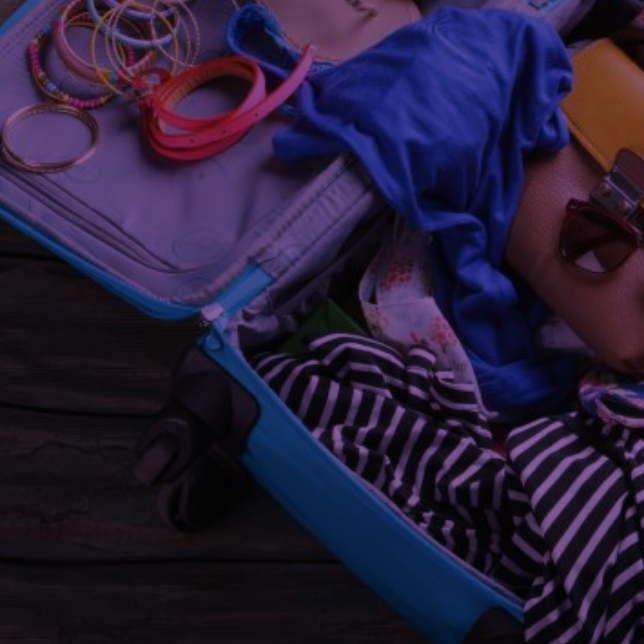
Explore malaria risk by country
Whether you’re heading to Africa, Asia or South America, discover malaria risk levels and guidance for each destination.
The ABCD approach is a simple way to remember how to prevent malaria when travelling to risk areas:
AWARENESS
Be aware of the risk and symptoms
BITE
Avoid being bitten by mosquitoes
CHEMO-
PROPHYLAXIS
Use chemoprophylaxis (antimalarial medicines)
DIAGNOSIS
Immediately seek
diagnosis and treatment
AWARENESS
Be aware of the risk and symptoms
Understand what malaria is, where it’s found, how it spreads, and the symptoms to look out for.
BITE PREVENTION
Avoid being bitten by mosquitoes
Malaria is spread through mosquito bites, so reducing your exposure is essential. Use insect repellent, wear long sleeves, and sleep under a net to stay protected. Detailed prevention methods are outlined below
CHEMOPROPHYLAXIS
Use chemoprophylaxis (antimalarial medicines)
Chemoprophylaxis refers to using medication to prevent illness - in this case, anti-malaria tablets. For some destinations, taking malaria prevention tablets is essential, so it’s important to check the malaria risk for your destination before you travel. Maloff Protect is a type of chemoprophylaxis that contains atovaquone and proguanil – two active ingredients that help stop the malaria parasite from developing in your body.
DIAGNOSIS
Immediately seek diagnosis and treatment if a fever or other symptoms develop
If you experience symptoms of malaria, seek medical advice promptly. Most cases occur within three months of returning from a risk area, but symptoms can appear up to a year later. Early diagnosis and treatment are essential to prevent serious illness.
AWARENESS
Be aware of the risk and symptoms
Understand what malaria is, where it’s found, how it spreads, and the symptoms to look out for.
BITE PREVENTION
Avoid being bitten by mosquitoes
Malaria is spread through mosquito bites, so reducing your exposure is essential. Use insect repellent, wear long sleeves, and sleep under a net to stay protected. Detailed prevention methods are outlined below.
CHEMOPROPHYLAXIS
Use chemoprophylaxis (antimalarial medicines)
Chemoprophylaxis refers to using medication to prevent illness - in this case, anti-malaria tablets. For some destinations, taking malaria prevention tablets is essential, so it’s important to check the malaria risk for your destination before you travel. Maloff Protect is a type of chemoprophylaxis that contains atovaquone and proguanil – two active ingredients that help stop the malaria parasite from developing in your body.
DIAGNOSIS
Immediately seek diagnosis and treatment if a fever or other symptoms develop
If you experience symptoms of malaria, seek medical advice promptly. Most cases occur within three months of returning from a risk area, but symptoms can appear up to a year later. Early diagnosis and treatment are essential to prevent serious illness.
Awareness is only the first step. Effective prevention and bite avoidance are key.
Be cautious of common bite prevention myths. While some people believe that eating garlic or taking vitamin B tablets can keep mosquitoes away, there’s no solid scientific evidence to support this.1
Instead, focus on proven methods. The following practical steps can help protect you when travelling in malaria-risk areas:
Take anti-malaria tablets (if recommended)
In some parts of the world, antimalarial tablets are strongly recommended to help prevent malaria. These medications work by stopping the malaria parasite from developing in your body.2 Whether or not you need antimalarial tablets depends on the risk level at your destination and your personal health. A full health consultation is recommended to discuss any additional precautions or vaccinations you may need.2
Maloff Protect (atovaquone/proguanil) is a well-tolerated option for adults in the UK. It’s available over the counter without a prescription and taken once daily – starting one to two days before entering a malaria-risk area, continuing throughout your stay, and for seven days after leaving.
Utilise screens, fans, and air conditioning
Choose accommodation with screened windows, air conditioning, or ceiling fans, as mosquitoes are less active in cooler, well-ventilated spaces.3 Where possible, keep doors and windows closed in the evenings to prevent insects from getting in.
Use insecticides indoors
Insecticides are used to kill mosquitoes in your environment. You can spray areas where mosquitoes might rest, such as walls, under beds, and behind curtains.4 Be sure to pack it in your luggage before travelling, as it may not be readily available at your destination.
Sleep under a mosquito net
At night, use a mosquito net5 that is treated with long-lasting insecticide (LLIN) for added protection. Make sure it’s properly tucked in and free from holes. This is especially important if you’re staying in basic or unscreened accommodation.6
Use insect repellent
Apply insect repellent regularly to exposed skin, especially during evening and nighttime hours when mosquitoes are most active. Choose a product that contains at least 50% DEET (diethyltoluamide), or alternatives like picaridin or lemon eucalyptus oil. Reapply as directed.7
Wear protective clothing
Where possible, cover up with loose-fitting, long-sleeved tops and long trousers – especially after sunset, when mosquitoes are most active. As mosquitoes are attracted to bare skin, keeping covered helps reduce your risk of bites. Clothing treated with insecticide offers additional protection. To stay comfortable in hot climates where malaria is present, opt for breathable fabrics like cotton or linen.8

Whether you’re heading to Africa, Asia or South America, discover malaria risk levels and guidance for each destination.

Find additional malaria advice and key travel tips to help make your trip as safe and stress-free as possible.

Order anti-malaria tablets online – available without a prescription, quick, easy, and delivered straight to your door.
*Please read the Maloff Protect Patient Information Leaflet for more information, including a full list of malaria symptoms, practical steps to avoid being bitten by mosquitoes, and how to take Maloff Protect.
1. UK Health Security Agency. Malaria prevention guidelines for travellers from the UK, pp. 25–26. Available at: https://www.gov.uk/government/publications/malaria-prevention-guidelines-for-travellers-from-the-uk (Accessed: July 2025).
2. UK Health Security Agency. Malaria prevention guidelines for travellers from the UK, pp. 27–36. Available at: https://www.gov.uk/government/publications/malaria-prevention-guidelines-for-travellers-from-the-uk (Accessed: July 2025).
3,8. UK Health Security Agency. Malaria prevention guidelines for travellers from the UK, p. 25. Available at: https://www.gov.uk/government/publications/malaria-prevention-guidelines-for-travellers-from-the-uk (Accessed: July 2025).
4,6. UK Health Security Agency. Malaria prevention guidelines for travellers from the UK, p. 24. Available at: https://www.gov.uk/government/publications/malaria-prevention-guidelines-for-travellers-from-the-uk (Accessed: July 2025).
5. Centers for Disease Control and Prevention. About mosquito nets. Available at: https://www.cdc.gov/mosquitoes/prevention/about-mosquito-nets.html (Accessed: July 2025).
7. UK Health Security Agency. Malaria prevention guidelines for travellers from the UK, pp. 21–24. Available at: https://www.gov.uk/government/publications/malaria-prevention-guidelines-for-travellers-from-the-uk (Accessed: July 2025).
PP-UK-MLF-0456 December 2025